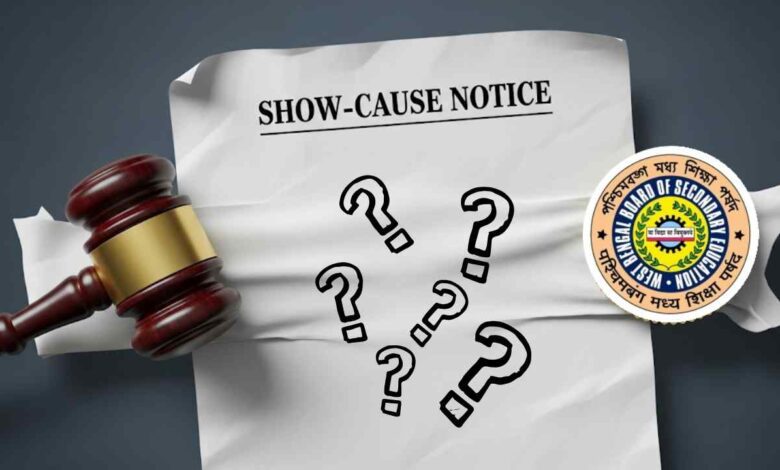Teacher Show Cause Notice: A Legal Tangle! Can Headmasters Actually Issue the Notice?

Teacher Show Cause Notice: A major question has emerged from Nabanna’s new directive mandating teacher attendance on strike days. The directive states that headmasters should issue show-cause notices to absent teachers. However, legal experts and previous court observations suggest that headmasters or school managing committees do not have the jurisdiction to issue such notices directly. This has sparked intense debate and legal complications.
What is the Actual Legal Process?
In West Bengal schools, there are specific laws and rules to handle allegations of misconduct against teaching and non-teaching staff. This process is primarily governed by the “West Bengal Board of Secondary Education (Appointment, Confirmation, Conduct and Discipline of Teachers and Non-Teaching Staff) Rules, 2018”.
According to these rules:
- The Authority: The ultimate authority to take final disciplinary action against teachers or non-teaching staff is the West Bengal Board of Secondary Education (WBBSE).
- The School’s Role: If an allegation is raised against a teacher, the school’s managing committee or headmaster can conduct a preliminary inquiry. They can ask for a response from the concerned teacher.
- Board’s Approval: If the managing committee believes the allegation is serious and disciplinary action is necessary, it cannot decide unilaterally. It must seek “First Approval” from the Board of Secondary Education, submitting all evidence to initiate disciplinary proceedings.
- The Final Step: Only after the Board reviews the application and grants approval can the school authority formally issue a show-cause notice and begin the investigation process. A show-cause notice issued by a school without the Board’s approval may not be legally valid.
The New Directive and the Controversy
The recent government directive concerning the strike asks headmasters to issue show-cause notices directly to absent teachers. This is where the central conflict arises. According to the law, a headmaster’s authority to issue a notice directly is limited without the Board’s approval, yet the government directive is compelling them to do just that.
Get Instant News Updates!
Join on TelegramDuring a hearing at the Calcutta High Court in March of this year, the Board’s own counsel admitted that school authorities do not have the power to issue show-cause notices directly. They can only report the complaint to the Board and the District Inspector of Schools (DI).
In this situation, if a headmaster complies with the government directive and issues a show-cause notice directly, the legal validity of that notice could be questioned. The risk of further legal complications increases if teachers challenge these notices in court. Caught in this crossfire, headmasters across the state are confused and find themselves in a difficult dilemma.

